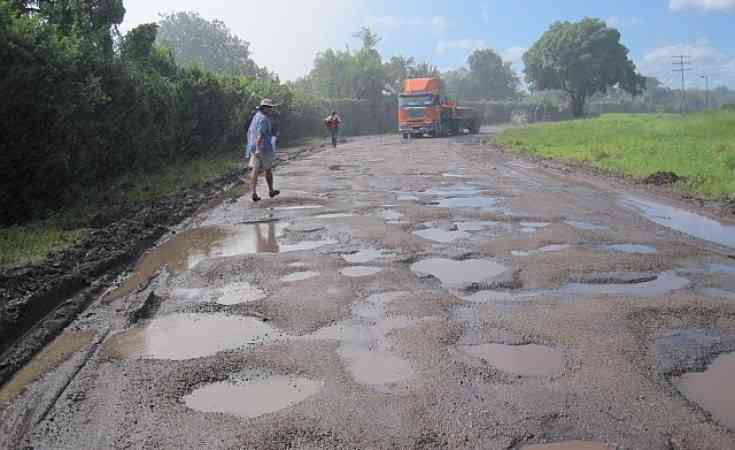
In the face of mounting economic challenges, climate uncertainty, and rising unemployment, agriculture remains one of the most strategic sectors capable of uniting societies and driving sustainable growth.
Yet, beyond its economic value, agriculture, particularly when driven by youth, can become a powerful tool for fostering social cohesion, peace and stability.
Across the world, youth-led agricultural initiatives are transforming rural communities, creating jobs and reducing tensions associated with resource scarcity.
For Zimbabwe, where youth constitute over 60% of the population and unemployment continues to soar, empowering young people through inclusive agricultural programs could be the cornerstone for social stability and national transformation.
Agriculture connects people to land, food systems and one another. It is not only about growing crops or raising livestock but also about nurturing communities and relationships.
When youth are actively engaged in agricultural production and governance, they help rebuild social bonds that may have been weakened by poverty, migration or political polarisation.
In many rural areas, competition for land and water resources often breeds tension and sometimes conflict.
However, inclusive, youth-driven agricultural initiatives such as community-managed irrigation systems or cooperative farming models encourage shared responsibility and equitable access to resources.
- Addressing unfair trade key to transforming African food systems
- Urgent economic structural transformation necessary
- Residents finger ZETDC employees in cables theft
- New perspectives: Building capacity of agricultural players in Zim
Keep Reading
This cooperation builds trust and reduces the likelihood of disputes.
For example, in countries like Kenya and Ethiopia, youth agricultural cooperatives have proven instrumental in reducing local conflicts by promoting collective ownership of inputs and profits.
Zimbabwe can adopt similar approaches. The country has a strong agricultural heritage and a youthful population that is eager to innovate.
By establishing youth-led agricultural cooperatives and community resource management structures, Zimbabwe can promote collaboration, transparency, and accountability among young farmers.
This not only increases productivity but also strengthens community ties key ingredients for lasting peace and social cohesion.
One of the most compelling reasons to prioritize youth in agriculture is their capacity for innovation.
Today’s generation is tech-savvy, adaptable, and more open to experimenting with new ideas such as digital farming, hydroponics, and climate-smart technologies.
In countries like Nigeria and Rwanda, young agri-entrepreneurs are using mobile apps and drones to monitor crop health, improve yields, and link farmers to markets.
These innovations are revolutionising the agricultural landscape while creating employment opportunities and reducing rural-urban migration.
For Zimbabwe, where the agricultural sector remains central to economic recovery, embracing youth led innovation is essential.
The government and development partners must establish robust innovation ecosystems that provide mentorship, incubation hubs, and financial support for young agricultural entrepreneurs.
Access to credit remains a major barrier for youth in Zimbabwe, as many lack collateral.
Thus, the creation of youth-focused agricultural funds and micro-grants would enable them to launch and scale their agribusinesses.
Moreover, public-private partnerships could help bridge the gap between innovation and implementation by connecting young innovators with markets, research institutions, and investors.
Another vital step toward harnessing youth potential in agriculture is involving them in decision-making processes.
Too often, agricultural policies are designed without the voices of those most affected by them young people and women.
This disconnect leads to policies that fail to address the realities on the ground.
Zimbabwe can draw lessons from countries like Uganda, which has institutionalized youth representation in local agricultural councils, ensuring that their perspectives influence policy decisions.
Similarly, Kenya’s Agricultural Youth Council offers young farmers a platform to engage with government officials and shape agricultural priorities.
For Zimbabwe, establishing youth advisory boards within the Ministry of Lands, Agriculture, Fisheries, Water and Rural Development could ensure that policy formulation benefits from youthful insight and creativity.
Such structures would also promote transparency and accountability while fostering a sense of ownership among young
The future of agriculture is inextricably linked to climate resilience. As Zimbabwe faces recurrent droughts, erratic rainfall, and land degradation, equipping young farmers with knowledge and skills in climate-smart agriculture is imperative.
Training programs that integrate modern technologies such as precision farming, organic agriculture and agroecology can enable youth to produce more with less while conserving natural resources.
Vocational and tertiary institutions must redesign agricultural curricula to align with climate adaptation strategies.
Partnerships with international organisations, such as the Food and Agriculture Organisation (FAO) or the African Development Bank (AfDB), could support the creation of agricultural innovation and training centres across provinces.
These centres should focus on hands-on learning, digital literacy, and entrepreneurial skills to prepare young people not only to farm but to manage value chains, from production to marketing.
Social cohesion thrives when governance is participatory and inclusive. Strengthening youth involvement in local governance and resource allocation processes can help rebuild trust between communities and authorities.
When young people feel heard and valued, they become active agents of peace and progress rather than passive recipients of aid.
Zimbabwe’s devolution agenda provides an opportunity to embed youth participation at the provincial and district levels.
Local councils could allocate specific budgets for youth-led agricultural projects, ensuring equitable access to land, inputs, and markets.
Moreover, transparent and inclusive systems—such as community-led monitoring of agricultural programs—can minimize corruption and enhance accountability.
In rural areas particularly vulnerable to economic and climate shocks, youth-led community projects such as seed banks, livestock pass-on schemes, and water harvesting systems can foster a spirit of collective resilience.
These initiatives not only ensure food security but also strengthen intergenerational collaboration, promoting harmony between elders and youth.
To build a youth-led agricultural revolution that reinforces social cohesion and stability, we must create youth agricultural innovation hubs: Establish provincial centers that provide mentorship, funding access, and incubation for youth agricultural startups.
Facilitate land access for youth: Review land reform policies to allocate land to deserving young farmers through transparent and fair processes.
Promote agripreneurship education: Integrate agriculture and business training into school curricula to inspire youth to view farming as a profitable and respected career.
Support inclusive agricultural cooperatives: Encourage youth and women to form cooperatives that strengthen community bonds and equitable resource sharing.
Institutionalise youth participation in policy: Embed youth representation in all agricultural decision-making bodies to ensure their voices shape the sector’s future.
Agriculture is more than an economic sector it is a bridge that connects communities, generations, and nations.
By placing youth at the center of agricultural transformation, Zimbabwe can not only revitalise its food systems but also build a stronger, more cohesive society.
Youth-driven agriculture promotes trust, inclusivity, and resilience values that are essential for peace and progress.
Investing in young farmers today is an investment in national stability and a prosperous future for all Zimbabweans.











